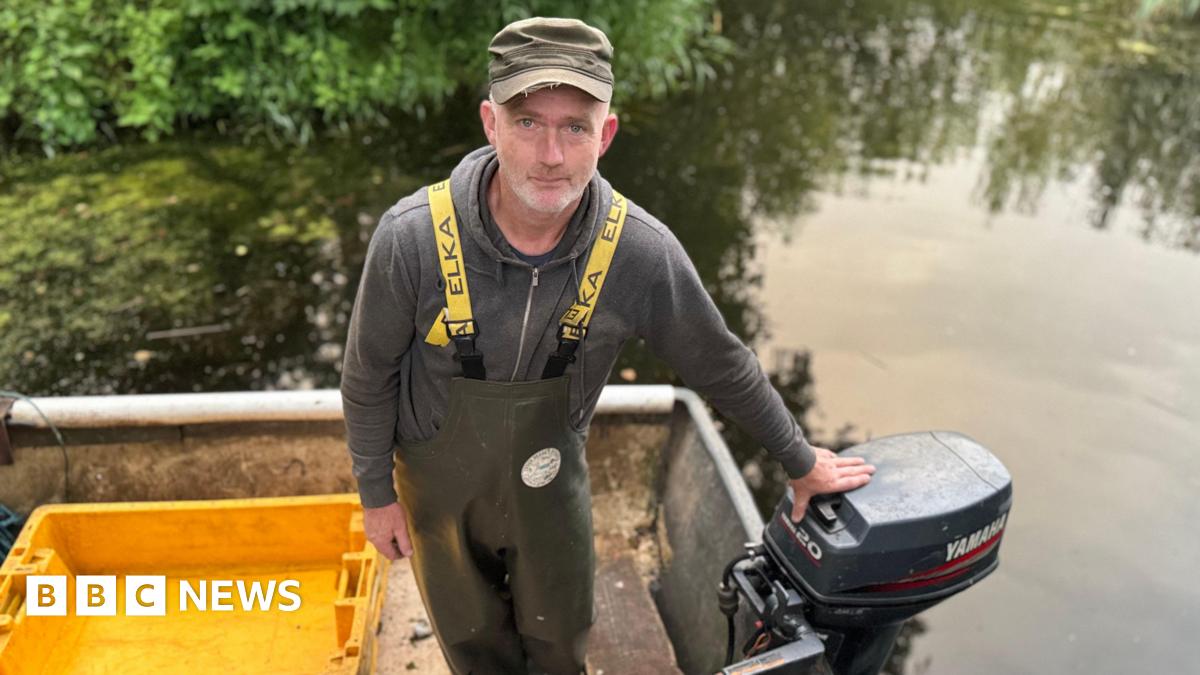The Ulster Farmers’ Union, external has warned that the draft proposals could see farmers having to reduce their livestock numbers.
“If there was a programme saying, over the next five to 10 years, you’re required to be doing this – mixed swards, more hedges – there are things that can happen if people are given enough notice,” said Mr Morrow.
“As farmers we’re very aware that we’re not doing all the polluting. There’s a water company or two that maybe need a bit of work and a lot of farmers feel they’re being picked on here.”
The Nutrient Action Programme (NAP) is a legal requirement.
It is reviewed every four years, with this latest version already several years overdue.
When it was first introduced in 2007, it led to improvements in water quality.
But Daera says those have largely been offset by the intensification of agriculture since 2012.
Agricultural pollution is the biggest contributor to the blue-green algal crisis in Lough Neagh.
Other sources of pollution, like wastewater treatment, industrial effluent and septic tank seepage also play a part.
